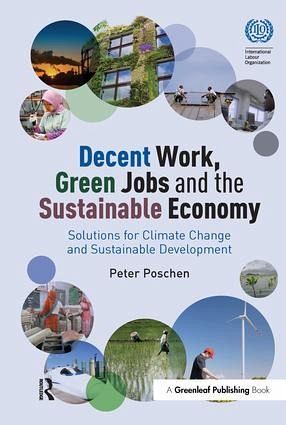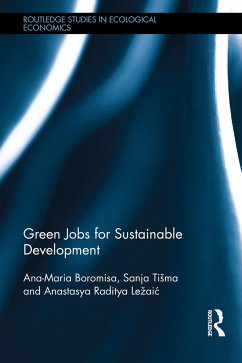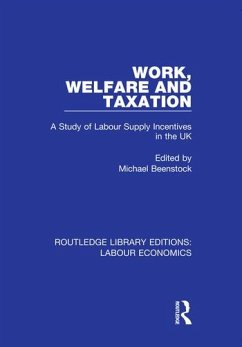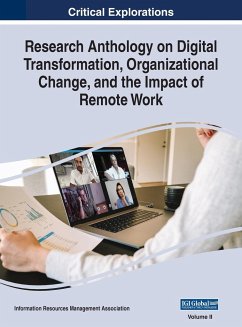
Decent Work, Green Jobs and the Sustainable Economy
Solutions for Climate Change and Sustainable Development
Versandkostenfrei!
Versandfertig in 1-2 Wochen
167,99 €
inkl. MwSt.
Weitere Ausgaben:

PAYBACK Punkte
84 °P sammeln!
The challenges of achieving environmental sustainability and generating decent work for all are closely linked. Poschen argues that an integrated approach is necessary: environmentally sustainable economies will not be attained without the active contribution of the world of work.













